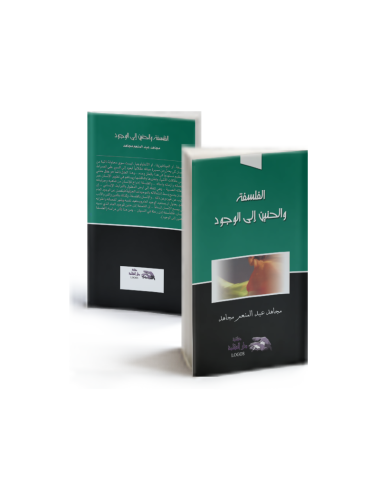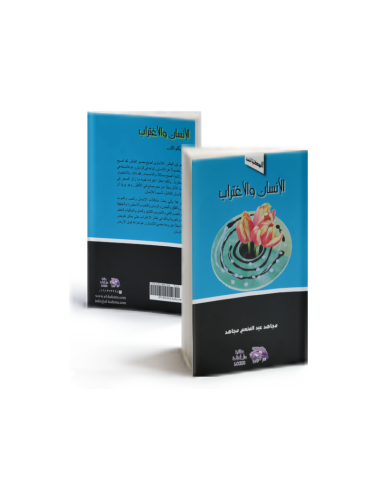Heideger - Pastor of Being
Existence led to alienation .. and man drowned in things .. he gasped after partial beings, and he forgot about existence.
- On sale!
0 kg - 150 kg
E£85.00 - E£92.00
Existence led to alienation .. and man drowned in things .. he gasped after partial beings, and he forgot about existence.
This book presents Paul Tillich at his very best--brief, clear, stimulating, provocative. Speaking with understanding and force, he makes a basic analysis of love, power, and justice, all concepts fundamental in the mutual relations of people, of social groups, and of humankind to God.
Philosophy, metaphysics, or ontology is nothing but a constant attempt by man to rationally adjust his life path so that he returns to walking on the bound path guiding in this the mind unity
Can we run from that which never misses?
Heraclitus asks
Homelessness has become the fate of the world .. Man has become separated from man
Realism diminishes reality, weakens it, and falsifies it. It does not take into account our main facts and our basic concerns such as love, death, and astonishment, it introduces the human being into an imperfect and alienated perspective, and ignores that reality exists in our dreams in our imagination.
Psychology of Aesthetics, Creativity, and the Arts is devoted to promoting scholarship on the psychology of the production and appreciation of the arts and all aspects of creative endeavor.
This book is the fruit of a love for Sartre that lasted more than twelve years, during which this French thinker lived within my breath; he was my sustenance and drink.
WHAT IS RELIGION ? by Paul Tillich, Translated by Mejahed Abdelmeaim mejahed, combines three works originally written in German, one of which was published in 1925. The two works in the final third of the book were presented to meetings of Kant-Gesellschaft in 1919 and 1922, and may now be found mainly in Gesammelte Werke volumes I and IX...
Revised and updated, this tender book offers encouragement and hope to those who may think they will never be able to get on with life after losing a child.
“[Alice Miller] illuminates the dark corners of child abuse as few other scholars have done.”―Jordan Riak, NoSpank.net
An examination of childhood trauma and its surreptitious, debilitating effects by one of the world's leading psychoanalysts.
Never before has world-renowned psychoanalyst Alice Miller examined so persuasively the long-range consequences of childhood abuse on the body. Using the experiences of her patients along with the biographical stories of literary giants such as Virginia Woolf and Marcel Proust, Miller shows how a child's humiliation, impotence, and bottled rage will manifest itself as adult illness―be it cancer, stroke, or other debilitating diseases. Miller urges society as a whole to jettison its belief in the Fourth Commandment and not to extend forgiveness to parents whose tyrannical childrearing methods have resulted in unhappy, and often ruined, adult lives.











